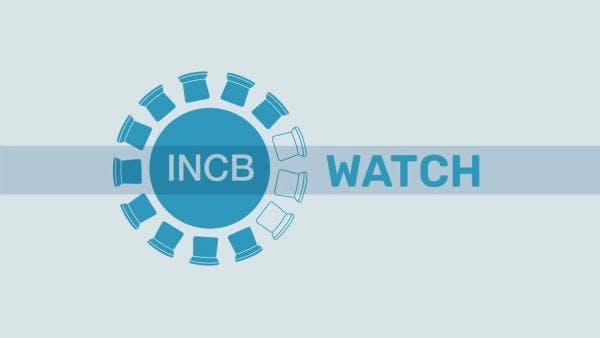The International Narcotics Control Board: The ghost of policies past
The African Union Conference of Ministers of Drug Control was held at Addis Ababa on the 6th to the 10th October.The event's avowed objective was to bring together ministers, experts and others to discuss the continent's drug policy. Although the INCB President Dr Lochan Naidoo was programmed to deliver a keynote speech, he failed to materialise in person, a printout of the presentation instead being circulated to delegates. As the INCB website puts it, the speech was 'made available'. No explanation was given of Dr Naidoo's absence, though it is highly unusual for a speech designated as a 'keynote address' not to be given by its author or,failing that, by some chosen representative.
In terms of the content of the INCB presentation, there is some encouragement to be drawn from its continued support for improved access to controlled medications and for the abolition of capital punishment for drug-related offences. On the other hand, unfortunately, Dr Naidoo now appears to be pursuing the repressive line trodden by his predecessors when it comes to any consideration of reforming the drug control conventions or the punitive ethic that remains pervasive across the system they underpin. The presentation contains a section seeking to engage with each of the major options for reform: legalisation, depenalisation and decriminalisation. While acknowledging the prerogative of states to consider alternatives to the current drug control apparatus – here the Board's largesse is admirable – it 'firmly believes' that 'permitting the recreational use of drugs would have a significant and irreversible impact on public health and social well-being'. There is no nuance allowed here: 'drugs', whether krokodil or khat, cannabis or crack, are all equally deleterious for individuals and the societies and cultures they inhabit,according to the INCB.
The arguments of the reform lobby, declares Dr Naidoo, 'do notwithstand critical evaluation'. On the INCB website, meanwhile, the speech is introduced as one that 'drew attention to the flaws in the arguments of advocates of facile solutions'. However, the few cursory paragraphs devoted to reformist arguments do not include any critical evaluation. Like the President himself with his non-appearance at the podium, and like the prohibitive ethic that runs through the past hundred years of drug control, determined to disallow the use of each and every form of intoxicant outside the medical context – the presentation issues a promise on which it fails to deliver.
Keep up-to-date with drug policy developments by subscribing to the IDPC Monthly Alert.
Topics
Related Profiles
- International Narcotics Control Board (INCB)
